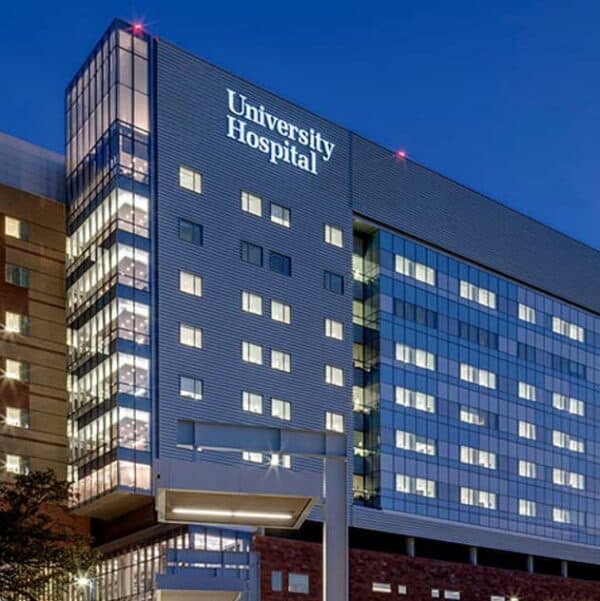Throughout 2019, a new trend emerged in healthcare – surgical centers. Although these centers, which are designed solely for outpatient surgeries, have been around for many years, quite a few of them opened over this past year. More and more patients are going to them, rather than standard hospitals, for outpatient surgeries like knee reconstructions and other orthopedic procedures. While this is a good thing, as far as those centers are concerned, they do come with some billing complications, especially if patients go to surgical centers that are outside of their main provider networks. This is where many of the billing issues come into play, some of which can only be solved with a series of Federal ERISA appeals.
Surgical Centers Are a Rising Trend
According to Becker’s ASC, over the course of the past year, a whopping 169 different ASCs and outpatient surgical centers opened up in the United States. Many of them were opened through partnerships with other hospitals and medical centers. For example, the “Hartford, Conn.-based St. Francis Hospital and Medical Center and Hartford-based Lighthouse Surgery Holdings are partnering to build the Orthopedic and Spine Surgery Center in Hartford.” Others are owned by one larger hospital, seeking to increase its physical footprint and meet a specific need, such as the case of the “Los Angeles-based Good Samaritan Hospital opened the Frank R. Seaver Ambulatory Surgery Center Sept. 4 as part of the nearly 200,000-square-foot Good Samaritan medical pavilion.”
In many cases, this is done in order to meet specific needs in the area. For example, the CEO of the University of Iowa Healthcare, Suresh Gunasekaran is determined to keep growing the hospital. He insists that “the new system’s expansion is necessary in order to touch as many lives as possible, because ‘I’ve not been to an academic medical center that has this kind of demand for surgical services.’” He went on to state that, “However, the commitment to partner with others — whether it’s others as referral centers to us, whether we’re going to develop joint programs with them, whether we’re going to simply be better citizens on how we transition care from one setting to another — we have to continue to work on partnerships.” While this is good, it also comes with a number of issues, such as billing problems.
Billing Issues That Plague Surgical Centers
Like with most billing departments, the ones at these surgical centers have a number of codes that they need to keep track of. Every commercial health insurance company has a contract with the surgical center. This information includes how much the surgical center can bill for certain procedures, as well as how those claims are sent in. Most are sent electronically to the insurance companies, making it easy to track them. The problem comes when mistakes are made in the billing process. Sometimes things end up getting miscoded, or the wrong amount is requested. When those claims are sent back to the surgical center, it’s up to the billing employees to double-check them and then resubmit them. This resubmission is the first of their state-level appeals. Only three are allowed.
In most cases (as you can see from the statistics included above) most claims are paid by the end of the three appeals. The problem comes when they aren’t. No matter the reason for the unpaid or underpaid commercial health insurance claims, these finished appeals can cause a number of problems.
State Level Appeals Don’t Always Go As Planned
Every surgical center has three state-level appeals that they go through when trying to collect on a commercial health insurance plan. The ways in which the appeals are done depends on the insurance company itself. Every one of them has a different form, another process, and sometimes a separate address that those claims need to be sent to. This just makes it more difficult for the surgical center’s billing employees. They need to know the specifics and have enough time to deal with each round of appeals. There’s usually a lot of paperwork involved. What makes this even trickier is the time frame.
According to the statistics in Becker’s most of these claims are sent out for payment within three days of the surgery. The time that it takes to wade through the codes and billing documents to find the correct forms is what generally leads to these delays. Without those specifics, the process would move much faster. It gets even worse when you consider what happens when those claims are sent back unpaid or underpaid. You only receive three state-level appeals on these claims before they end up being shelved for good. At that point, they end up in what we call a debt bucket, on the wrong side of the balance sheet. If those add up enough – and the rate of fully paid claims begins to fall precipitously – then your surgical center ends up in financial hot water.
Unpaid Claims Can Add Up Quickly
Surgical centers have quite a few bills to pay, including the surgeons and supporting doctors and nurses, their utilities, any building maintenance and upkeep, and necessary supplies. Without a cash flow that consists of 100% paid claims, your surgical center could end up in financial trouble. There’s also the issue of the “boom period” that surgical centers are in. The need and market for them could end up shrinking, making these unpaid claims even more important.
Federal ERISA Appeals Are the Best Solution
Thankfully, there’s an option when it comes to those rejected surgical center claims – the Federal ERISA appeals process. ERISA, also known as the Employee Retirement Income Security Act, is a method used by specialists to ensure that those commercial healthcare claims get paid. According to ERISA, which was created to govern employee retirement plans and then expanded to include self-paid health insurance, those unpaid commercial healthcare claims must be paid. However, this is a specialized and time-consuming process.
The main issue is that the surgical center billing employees don’t have the time to go through the Federal ERISA appeals process. These billing employees more than likely don’t know how even to begin such an appeal, nor do they have access to complete the paperwork and follow up on them. They’re too busy sending out bills for current claims, as well as dealing with those that are in still working through the state level process. All of that money – which these surgical centers really could use – is going uncollected. You need us, ERISA Recovery, to handle the Federal ERISA appeals for you. We don’t require any payment up front and even have a 12-month $1 million guarantee. To be specific, we guarantee that we’ll collect $1 million in claims for you over a 12-month period, as long as we have access to the information that we need.
Sometimes You Need Expert Help
It’s time for you to take control of your surgical center’s financial future. You need to ensure that your collection rate from commercial health insurance companies is 100%. This is why you need to contact ERISA Recovery today so that we can help put the Federal ERISA appeals process in motion. You can reach us at (972) 331-4140 or by filling out the contact form on our website.







